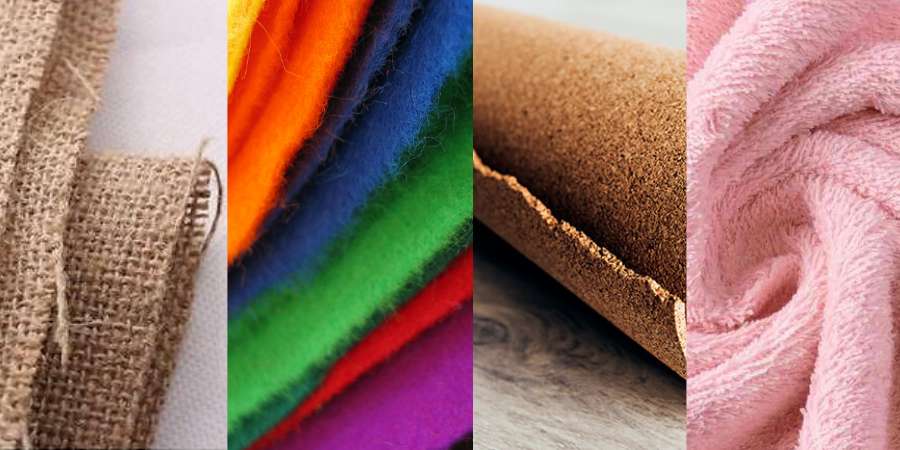Clutches, cosmetic bags and beauty cases are among the most requested personalized items by companies for their promotions. They are unisex, they can be made in various sizes, they can be used as a make-up holder, for sunscreens at the beach, to insert everything you need during a trip, so they are really useful and are never too many to keep available in our closet. In this period, the demands of companies are focused on clutches made of natural cotton or RPET (recycled plastic), for an eco- friendly choice. Not everyone knows, however that, wanting to remain in the context of sustainability, there are other materials that can be taken into consideration, and perhaps they are even less inflated. Here is a quick guide that could help you in your choice and open you up to new possibilities.
The recycled cotton
Regenerated cotton is obtained through the complete recycling of old clothes or waste from other processes. This material has a texture more rough than normal cotton. The customization of the recycled cotton clutch bag can be done as on normal cotton.
The Jute
Jute is a plant tissue obtained from the macerated bark of plants grown in tropical countries. It is recyclable, biodegradable, very resistant and suitable for a clutch bag especially if combined with a summer promotion. You can have interesting cotton-jute mixes, leaving the jute base for greater resistance and developing the cotton clutch, for a combination of natural materials with a raw color.
The cork
The cork is an environmentally friendly material that comes from the bark of a plant capable of self-regenerate, and then the realization of the objects with this material has a low environmental impact. Cork is acoustic and thermal insulation par excellence, as well as being 100% renewable and recyclable.
The paper kraft
It is a 100% recycled and recyclable paper, made with waste material, eco- friendly, resistant, water-repellent and washable by hand. It is a really interesting and original material to make clutch bags.
The sponge
The terry cloth is made of cotton, so this material is also to be counted among the eco-friendly ones. The clutches made of sponge are soft, washable and reusable. Also in this case you will be truly original!
The felt
Felt is a natural material obtained from the felting of wool fibers. The process has a low environmental impact and the fabric is 100% biodegradable. A clutch made with this fabric is especially suitable for winter promotions.
The Non-Woven fabric
Yes, even the very popular Non-Woven material can be defined as an eco- friendly one! In fact it is obtained from the polypropylene through a thermoplastic pressing process: a material recycled and 100% recyclable, washable, economical and that has a considerable strength and resistance to weight, thus making it ideal its use in shopping production bag and clutch bag.
The TPU
TPU is presented as an ecological and green solution because it is completely PVC-free and free from solvents such as DMF, benzene and toluene. Its appearance is similar to rubber, it is resistant and flexible. Definitely a valid alternative to the classic PVC!
Now it’s up to you, be the right choice!




